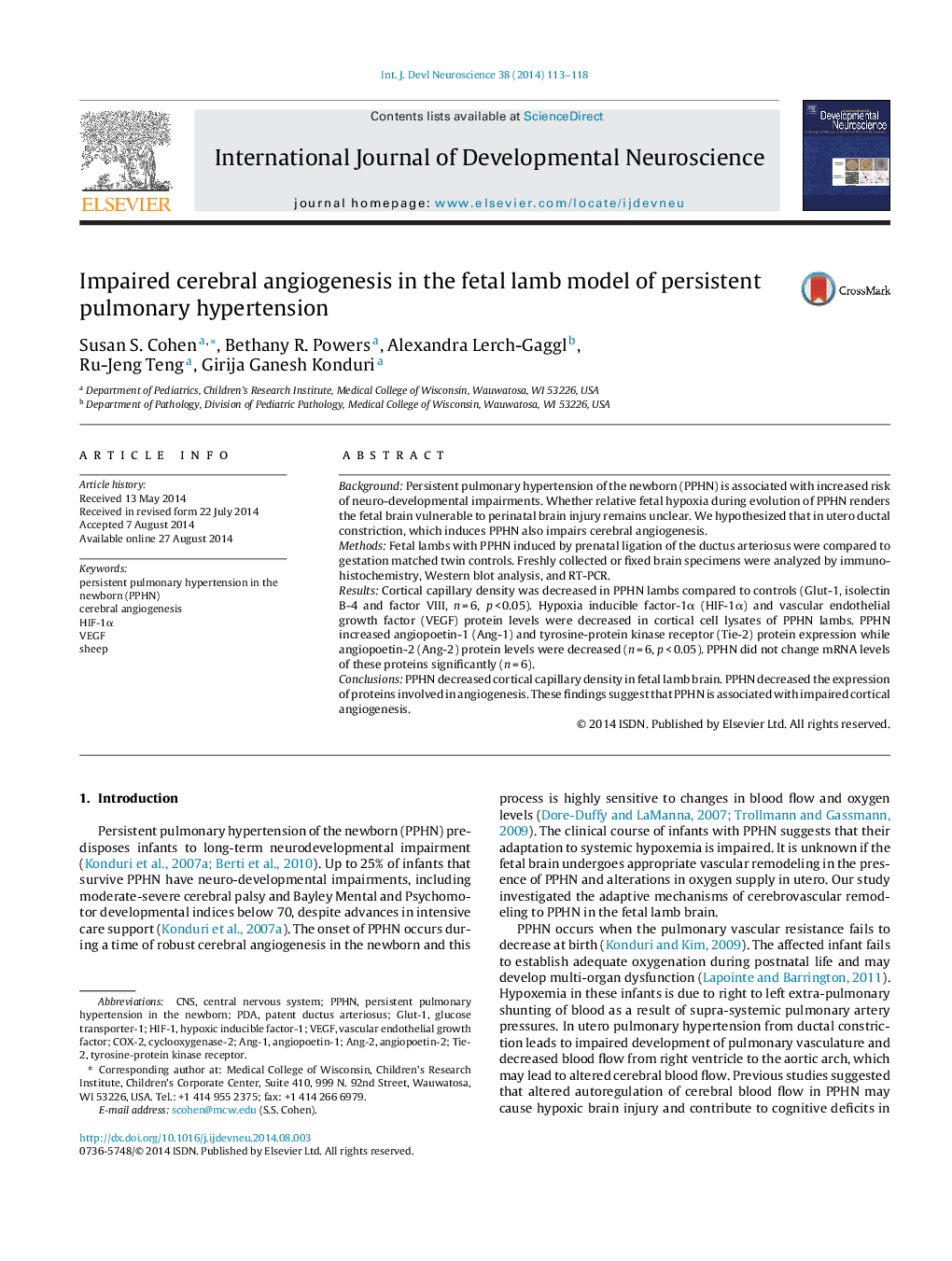| Article ID | Journal | Published Year | Pages | File Type |
|---|---|---|---|---|
| 2785962 | International Journal of Developmental Neuroscience | 2014 | 6 Pages |
•PPHN predisposes infants to long-term neurologic impairments.•PPHN is associated with impaired angiogenesis in the brain.•Impaired cerebral angiogenesis may lead to maladaptation to hypoxic injury.
BackgroundPersistent pulmonary hypertension of the newborn (PPHN) is associated with increased risk of neuro-developmental impairments. Whether relative fetal hypoxia during evolution of PPHN renders the fetal brain vulnerable to perinatal brain injury remains unclear. We hypothesized that in utero ductal constriction, which induces PPHN also impairs cerebral angiogenesis.MethodsFetal lambs with PPHN induced by prenatal ligation of the ductus arteriosus were compared to gestation matched twin controls. Freshly collected or fixed brain specimens were analyzed by immunohistochemistry, Western blot analysis, and RT-PCR.ResultsCortical capillary density was decreased in PPHN lambs compared to controls (Glut-1, isolectin B-4 and factor VIII, n = 6, p < 0.05). Hypoxia inducible factor-1α (HIF-1α) and vascular endothelial growth factor (VEGF) protein levels were decreased in cortical cell lysates of PPHN lambs. PPHN increased angiopoetin-1 (Ang-1) and tyrosine-protein kinase receptor (Tie-2) protein expression while angiopoetin-2 (Ang-2) protein levels were decreased (n = 6, p < 0.05). PPHN did not change mRNA levels of these proteins significantly (n = 6).ConclusionsPPHN decreased cortical capillary density in fetal lamb brain. PPHN decreased the expression of proteins involved in angiogenesis. These findings suggest that PPHN is associated with impaired cortical angiogenesis.
